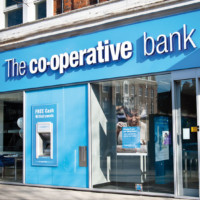
In the first half of 2016, £1.5bn worth of mortgages completed at Co-op Bank, up from £1.1bn a year earlier. Lending through intermediaries continued to dominate activity, with 86.4% of mortgages completed through brokers, compared with 87.2% at the end of 2015.
Co-op listed a number of factors that could impact the bank’s operating environment following the UK’s vote to leave the European Union, with a “possible contraction of UK mortgage market” named as an element that could hit its core loan book growth.
CEO Niall Booker said: “As noted by others, today’s market conditions are challenging for all retail-focused banks and the macroeconomic uncertainty following the result of the EU referendum, including the likelihood of lower for longer interest rates, may restrict our ability to grow revenue in the short term.”
The ongoing development of Co-op’s outsourcing contract with Capita for mortgage origination and service processing was also named as a risk to the bank’s mortgage business.
Last year Co-op entered into an agreement with Capita to hand over its mortgage processing operations for the bank’s three mortgage brands.
A handover of new mortgage loans to be processed by Capita is now likely to be “significantly delayed”, with “material uncertainty” surrounding the extent and implications of the delay.
“This could result in any of the following: increased costs; reduction in the transformation scope; and increased legal risk for the Bank. Consequently, there is a risk of an adverse effect on the bank’s mortgage business and its Updated Plan,” Co-op said.
Co-op Bank reported another period of losses before tax in its interim results, but has slashed this from £204.2m in the first half of 2015 to £177m a year later.
The bank said its overall business performance is due to legacy issues as it seeks to transform IT infrastructure and invest in digital banking, which it explained is “required to address the historic under-investment in systems and processes”.
Co-op hopes to achieve sustainable core operating profitability by late 2017.
Booker added: “As we’ve said many times before, addressing the Bank’s historic legacy issues will continue to impact our overall financial performance until the end of our plan period.
“Spending on the continued delivery of our significant remediation and transformation projects has been higher than planned during the first half of the year but the bulk of this spending is offset by other one-time gains in H1. The increasing focus of future project spend will be on those projects generating a positive net present value, and which are more focused on business needs going forward than remediating past problems. This is positive.”
















